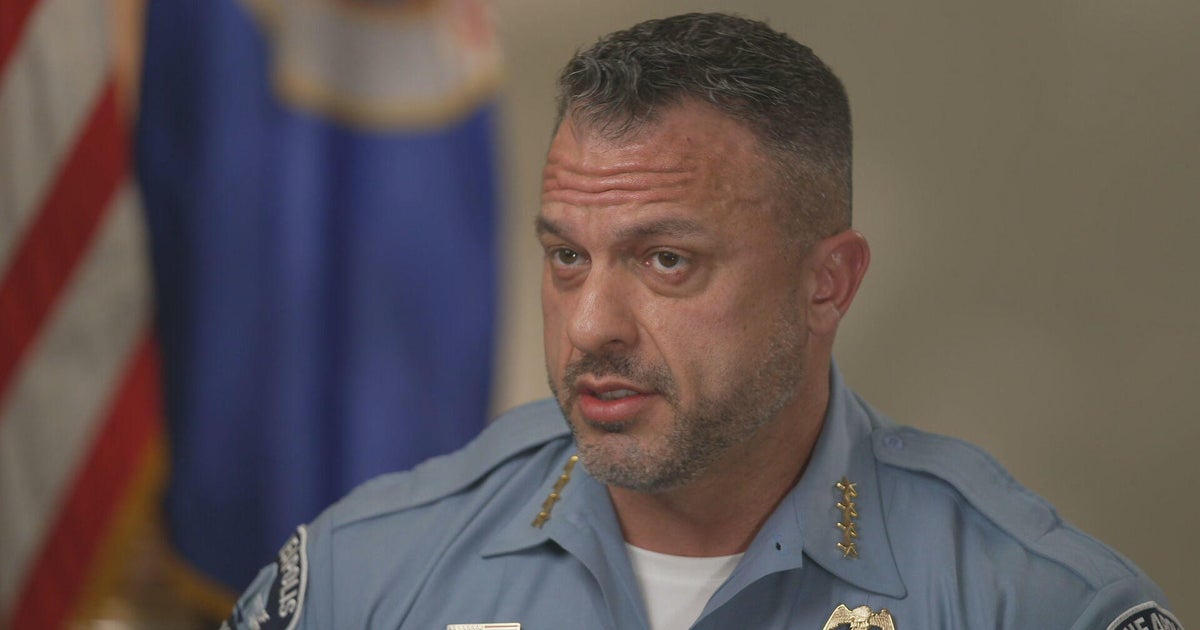Minneapolis — On a recent Wednesday afternoon, Minneapolis Police Chief Brian O’Hara is racing to a priority call.
“I try to come out to show the officers I am here to back you up,” O’Hara tells CBS News.
O’Hara says his department is short by more than 200 officers, and has lost 40% of its police force in the last four years.
“It is incredible,” O’Hara said. “It’s not just that we lost 40% of the force, they’ve been facing the highest levels of crime and violence, in some categories, that the city has ever seen.”
Minneapolis is facing a surge in assaults, and nearly three dozen shooting calls a month. Officers have been subject to some mandatory overtime.
Large-scale police staffing shortages aren’t limited to Minneapolis. They are taking place in cities big and small, from coast to coast.
The Philadelphia Police Department is short about 1,170 officers, the agency told CBS News. The Chicago Police Department is short more than 1,140 officers, the department disclosed, while the Los Angeles Police Department is short more than 470 officers.
But in Minneapolis, the hurdle is more than just manpower, it is trust too. Nearly four years after the murder of George Floyd by a Minneapolis police officer, the department has cleaned the house of its top brass.
O’Hara was hired as chief in late 2022 from Newark, New Jersey — where he served as deputy mayor — as the department seeks to change its culture.
But not everyone thinks there’s been enough change yet.
“I don’t think that the department has been transformed by choice,” said Nekima Levy Armstrong, a Minneapolis community activist for nearly two decades. “I think that it’s been transformed by necessity.”
Armstrong says O’Hara has not yet rid the department of all officers who are too physical or too focused on people of color.
“It’s unfortunate that they’re down 40%, but this is of their own making, right? The handwriting was on the wall in regard to the conduct of many Minneapolis police officers,” Armstrong said.
Like many other departments, Minneapolis offers signing bonuses for new recruits. But O’Hara says the problem is deeper than money. In an February editorial in the Star Tribune, he posed the question: “Do we expect too much from police officers?”
“Well, people expect perfection every time, absolutely,” O’Hara told CBS News.
As he struggles to rebuild the force, O’Hara emphasizes to his officers that summer usually means a spike in crime.
“It’s getting warmer, and staffing is definitely a concern,” he told his staff at a recent roll call.


